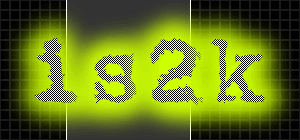|
12.05 - Internet & Society 2000 is now over. Thank you all for a great
semester!
12.04 - Papers are in, the course is almost over. If you have any lingering
questions regarding course requirements please read the FAQ again and then email
ishelp@cyber.law.harvard.edu
if your question is not answered there.
11.27 - INSTRUCTIONS FOR TURNING IN IS2000 PAPERS:
1/ Email an electronic copy of the paper to ishelp@cyber.law.harvard.edu
by 5pm on Wednesday, November 29th.
2/ Submit a single hard copy of your paper to Professor Zittrain's assistant,
Sara Hathaway in Griswold 505 no later than 5pm on Wednesday, November 29th.
All papers must have a cover sheet including the names of all students responsible
for the paper.
3/ Direct all questions related to submission of papers to ishelp@cyber.law.harvard.edu
with "Paper Question" as the subject line.
11.21 - The readings for the student-led class on comparative cyberlaw are
now available online in the readings section
of the website. The rotisserie question for this week is optional. It is for
glory not credit. Note also that it will not operate on the regular schedule.
Answers may be submitted until Monday, November 27th at 4:00pm. It will not
crank. Enjoy Thanksgiving break!
11.20 - There are new readings at the distribution center for the student-prepared
class on comparative cyberlaw on the Monday afternoon (the day after the end
of Thanksgiving break). They will also be available online soon. There will
be an optional rotisserie question that can be submitted by Monday at noon and
will not reverberate.
11.15 - You will all have noticed that the rotisserie question has not yet
been posted this week. It will be posted and sent out to you by email soon.
You will have extended time to answer the question.
11.10 - Remember that there is NO CLASS on Monday, November 13th. For those
of you who are interested, tune
in to the webcasts the Berkman Center is doing from the ICANN
meetings in LA. On Sunday the Berkman Center is doing a full
afternoon of moderated panel discussions on issues facing ICANN. Professor
Zittrain will be moderating a panel on New TLDs at 4:30pm (PST). Tune
in to the webcast on Wednesday and Thursday to see ICANN in action.
11.6 - Welcome back from fly-out week. Please make sure that you have the new
readings which are available at the distribution center and on the website.
10.16 - We are using the remote comment system today. Click
here
to ask a question.
10.10 - McIntyre
v. Ohio Elections Commission is an interesting case
on the topic of anonymous speech which relates to the course topics
this week.
10.3 - Paper proposals are due as part of the rotisserie answers
this week.
9.19 - Paper proposals are due in two weeks. Students seeking
other students with whom to write the paper may want to use the
discussion set up for this purpose in the discussion area.
9.19 - Remember to answer the new rotisserie questions by Sunday,
September 24 at 5:00 pm.
9.18 - Responses to the responses of other students are due on Tuesday
at Noon. They should be thoughtful and need not be lengthy.
9.18 - Panel assignments for September 25 and 26 have been emailed
to the panelists. If you have not received an email, you are not
on panel.
9.12 - Mentors are available through the Berkman Center Clinical Program to
help advise you in choosing a paper topic and working on your papers. If you
are interested, please check out the bios
of the mentors.
9.11 - The rotisserie has begun. If you have not registered for the
courseware you must do so by Tuesday at noon. Visit the courseware
page to register, log in, and submit rotisserie answers to the courseware.
9.11 - Panel assignments for Monday, Sept. 18 and Tuesday, Sept 13 have been
emailed to panelists. If you have not received an email, you are not on panel.
9.05 - Panel assignments for Monday, Sept. 11 and Tuesday, Sept. 12 are posted
in the discussion area of the site. Assignments
for the rest of the semester will be available in the discussion area soon.
If you cannot participate on panel for your assigned day, please email the teaching
fellows at ishelp@cyber.law.harvard.edu.
For more information on requirements for panels and panel assignments please
see the FAQ.
9.05 - A first round of responses has gone out to
all those who applied to the course by late Monday evening. If you applied to
this course before then and have not heard anything, please send an email to
is2000@cyber.law.harvard.edu
explaining the situation. If you have been accepted into the course, you must
formally enroll with the HLS registrar today. The first session is Tuesday,
Sept. 5, in Austin West from 4:20-5:50.
8.18 - IS2K is now accepting applications for enrollment
from Harvard Law School students and cross-registrants. Applications are available
here.
8.18 - Clinical work is available in conjunction with
IS2K. More information on the Berkman Center for Internet and Society clinical
program is available here.
8.18 - For more information about the course please
refer to the FAQ. You might also want to check out the
web sites for earlier iterations of the course: I&S '99;
I&S '98; I&S '97.
|
